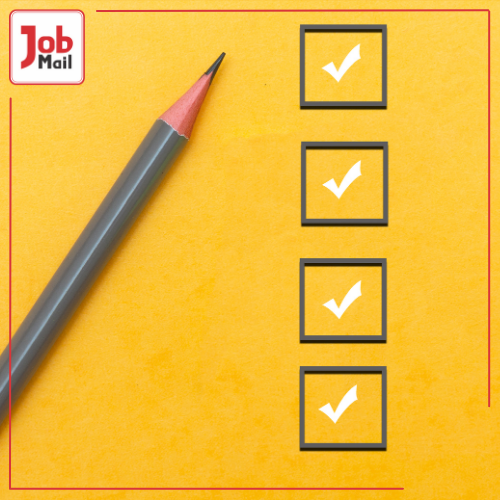It’s a new year and many of you might be thinking about finding a new job. Looking for work might feel daunting, but if you’re prepared, confident, and ready to start your job search, it can give you an edge over the other candidates vying for the same position. The key is having a rock-solid game plan in place that allows you to take action daily.
Looking for a new job? Upload your CV to Job Mail for FREE and start applying today.

1. Review your CV
It’s important to review your CV often to make sure it’s up to date. Your Curriculum Vitae should be a reflection of what you’re currently capable of and what you hope to achieve in the future. It may also be a good idea to show a copy of your CV to friends or family and ask them for an honest review and any helpful input they can give. A well-written CV is more than just an essential tool for job hunters, it’s also a tool that can be used to boost career prospects. An ATS-optimised CV will make you stand out from the crowd of candidates who have the same qualifications or experience you do. It’s also an excellent way to get recruiters interested in you. Register your CV on Job Mail and create a free job seeker profile.
2. Update your online profile
Your online presence is how people find out more about you, so it’s important to keep your online profiles up to date with the latest information. When you update your online profiles, be sure to link them to each other as well as to your social media profiles. This will help recruiters and potential employers find you more easily.
3. Listen and learn
Communicate with other individuals in your professional field. It’s important to get involved in various aspects of your industry in order to stay up to date with what’s happening. Whether it’s attending conferences and networking events, writing online articles or debating jobs in online forums and groups, it’s essential that you don’t just think about your job search but also talk about it to others. As David Ogilvy says in an article from Business Insider, “He who talks about himself without reference to others is either conceited or foolish.” Find out how your peers got to where they are today, and ask for tips and the skills required to make it in your chosen career. They might not be able to help you with your search, but the information they share can end up sending you in the right direction when it comes to your career ambitions.
4. Broaden your skill set
You may be a specialist in a particular field, but in the long run, it could work against you. More often these days, employers and recruiters are looking for candidates who are versatile and knowledgeable in many areas as well as experts in their field. Find courses online and upskill yourself, the time spent on them will be well worth it.
5. Set goals
One of the most important steps in hunting is to have a clear plan for the actions you are going to take each day while keeping the goals you have set for yourself in mind. By targeting the specific goals and the actions you will take each day – and having a plan for them – you will stay focused and start receiving replies to your job applications. The goals can be anything from revisiting your CV and cover letter to applying for jobs daily. Create job alerts on Junk Mail and get the latest jobs straight to your inbox.

6. Now that you’ve set goals for yourself, it’s time to take action
One of the best ways to make your goals a reality is to initiate conversations with potential employers and search for jobs. Create job alerts and get all positions best suited to you delivered straight to your email inbox. This will save you time that can be used to focus on your other goals.
7. Prepare for your job interviews
Research frequently asked interview questions. “Where do you see yourself in five years?” “What is your greatest weakness?” Even if you think you can wing it, it’s always better to be prepared. Also, compile a list of questions you want to ask the interviewer in advance, it will pay off in the end. Be sure to keep an eye on our blog and social media pages, we’ll be sharing a post about the most common interview questions soon. Use Job Mail to search for your job.
8. Follow up
‘Thank you’ emails after a job interview have a number of benefits for job seekers. A follow-up email lets the employer or recruiter know that you are still interested. It provides a recap of the conversation, and it allows the job seeker to include information that may have been missed during the interview. Post-interview emails are a crucial part of the interview process. A recent study showed that 68% of employers and recruiters will not call back candidates who do not follow up.
If you’re new to job hunting and unsure of where to start, use our job search checklist to help guide you through the process of finding employment. Ensure you cover all the important points mentioned above, whether you’re looking for your first job or thinking about making a career change. Find jobs on Job Mail and apply for them today!




